12 products
- Red Wine
- Graciano, Grenache, Tempranillo
- Sustainable
- Dry
- Medium Bodied
- 750ml
- 14.5% alc./vol
About the Winery
Bodegas Exopto
Exopto is Latin for “to long for” or “to desire greatly” and it is the dream of Frenchman Tom Puyaubert and his family to endeavor to craft and assemble wines where the whole adds up to more than the sum of their parts. Tom relocated from France to Rioja in 2000 after falling in love with the region and working for the French cooperage Saury as its Spain representative.
When Tom began Exopto, he wanted to do a project that produced wines within this historical context of Rioja - combining both worlds in a unique way. His idea is to remain true to the blending of the principle grape varieties and to do so from the best terroirs/villages for those varieties crossing sub-regions of Rioja. Each wine though, has a majority of a different principle grape – showcasing that variety specifically within the context of a blend. The viticulture and winemaking model is that of the “vigneron” days – small plots of vines in the extremes, wild yeast fermentation in concrete or old oak vats and then aging in a way to showcase the fruit, minerality and terroir not the wood or aged flavours that people often associate with Rioja.
Press Reviews
Robert Parker
92 points
The very young red 2021 Bozeto de Exopto mixes Tempranillo from Ábalos and Mediterranean Garnacha from Alfaro (with 10% Graciano), and it seems very balanced, with good ripeness (14.5%), showing the Garnacha and the more austere Graciano with nice fruit and freshness. It's serious and has complexity and depth beyond its price point. It matured in a combination of concrete and oak containers for some six months. Excellent value in one of the finest vintages for this wine. 70,000 bottles produced. It was bottled in April 2022.
Wine Align
91 points - John Szabo
A blend of garnacha, tempranillo and graciano grown at around 500m in the Sierra de Cantabria, this is aged exclusively in concrete and thus a long way from what many would consider the 'traditional' style of Rioja. I like the freshness and vibrancy allied at the same time to ripe, plush fruit spanning both the red and black spectrum. Tannins are supple and acids balanced and creamy, leading into a long, gently saline finish. Concentration and depth, as well as complexity overall, far exceed expectations in the category. Well made wine from an evidently superior vineyard, delicious now, or hold 3-4 years. Tasted January 2024.
91 points - Megha Jandhyala
This is a charming Rioja, a blend of garnacha, tempranillo, and a small amount of graciano. I like the bright, supple red fruit here and the pretty floral and savoury herbal notes. The palate is lively and supple, with fine-grained tannins and juicy acids. Fresh, streamlined, and with a sense of lightness that is appealing, this wine is ready to drink, though it can also be cellared for a couple of years. Tasted January 2024.
- Red Wine
- Grenache, Samso / Carignan, Syrah
- Sustainable, Vegan-Friendly
- Dry
- Residual Sugar: 2 g/l
- Full Bodied
- 750ml
- 14.50% alc./vol
About the Winery
Clos del Rey
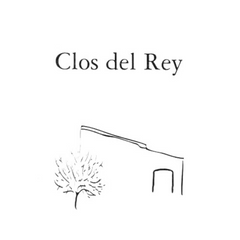 In the foothills of the Pyrénées Mountains, not far from the Mediterranean sea, Clos del Rey is situated in the high altitude hills over the tiny village of Maury. The estate has been owned and farmed by the Montagne family for generations. The vineyard itself is nestled among a protected area of garrigues (rosemary and thyme). The vines of up to 120 years old are allowed to grow natural and untrained, in the old-fashioned way, known as the goblet or bush style. However, it is what lies beneath the vineyard that lends much of the character and complexity found in their wines. Julien Montagne makes complex wines that truly represent his vineyards and his Catalan roots--you can almost smell the sun in the glass.
In the foothills of the Pyrénées Mountains, not far from the Mediterranean sea, Clos del Rey is situated in the high altitude hills over the tiny village of Maury. The estate has been owned and farmed by the Montagne family for generations. The vineyard itself is nestled among a protected area of garrigues (rosemary and thyme). The vines of up to 120 years old are allowed to grow natural and untrained, in the old-fashioned way, known as the goblet or bush style. However, it is what lies beneath the vineyard that lends much of the character and complexity found in their wines. Julien Montagne makes complex wines that truly represent his vineyards and his Catalan roots--you can almost smell the sun in the glass.
Press Reviews
Wine Align
91 points - John Szabo
An old vines cuvée of grenache, carignan and syrah from the stony, schisty soils of Maury, historically reserved for fortified wine production in the style of port, this Maury 'Sec' is a concentrated and aromatic, flavourful wine, with a liquor-like essence of blackberry and blueberry fruit, sweet and resinous wild herbs, scorched earth and licorice, and more in a highly satisfying and bold ensemble. Tannins are abundant but coated and softened by high fruit extract, while acids are low but adequate to balance the big ensemble. Great length. Immensely satisfying at the price; drink or hold another 4-6 years I suspect without concern. Tasted September 2022.
90 points - Megha Jandhyala
This is a rich, ripe blend from Maury Sec, an appellation in the Agly Valley in Roussillon that was authorized for the production of dry red wines in 2011. The nose is inviting and appealing, with notes of cherry compôte, black raspberries, garrigue, and a subtle mineral aroma that reminds me of wet cement. It is medium-bodied, with grainy, drying tannins and balanced acids. I really like the lush fruit on the mid-palate that recede gracefully, leaving a subtle bitterness and warmth in their wake. Tasted September 2022.
90 points - David Lawrason
The village of Maury is better known for its sweet 'vins doux naturel'. This dry red based on grenache, carignan and syrah shows the energy, or a certain internal combustion, I associate with the carignan grape. The nose is quite lifted with red fruit (raspberry, plum) some spice and minerality. It is medium-full bodied, sour-edged and firmly tannic with some heat. Quite peppery and meaty (charcuterie) on the finish. The length is excellent. Tasted Sept 2022
90 points - Sarah d'Amato
From a relatively new appellation in the southwestern region of Roussillon designated in 2011 to allow producers to craft dry reds in addition to the more famous Vin Doux of Maury. In the midst of all the sweetness of the region, Clos del Rey makes only dry wines. This plush incarnation features flavours of liquored black cherry, a chalky minerality and tender tannins. Ripe but with a lick of minerality that helps to provide balance along with a welcome degree of bitterness. Some bitterness helps curb the perception of alcohol too. An arresting yet youthfully broody wine. Tasted September 2022.
- Red Wine
- Grenache, Mourvèdre / Monastrell, Samso / Carignan, Syrah
- Sustainable, Vegan-Friendly
- Dry
- Medium Bodied
- 750ml
- 14.5% alc./vol
About the Winery
Domaine Andre Aubert
At the very heart of the Rhône Valley, at the northerly tip of the Southern Rhône, lie the vineyards of Grignan-Les-Adhémar. The chances are you haven’t heard the name before, few people have, but the wines are worth seeking out. It’s not a new wine region – vines have been planted here since around 500BC but it is a new name (formerly known as Côteaux-du-Tricastin). Domaine André Aubert, has been formed over decades and today comprises of more than 280 hectares spread from north to south of the prestigious Southern Rhone Valley on the appellations Côtes du Rhône, Côtes du Rhône villages, Visan, and Grignan-les-Adhémar.
Press Reviews
Wine Align
90 points - David Lawrason
This is new appellation (formerly Coteaux de Triscatin) is the northernmost in the southern Rhone. It uses the typical southern Rhone varieties, but none can be more than 80% of the blend. This is a quite elegant, well structured, mid-weight red with some stony minerality, lifted pepper and savoury notes. Not as opulently fruity and rich as many peers, yet very tidy and balanced. The length is very good to excellent. Tasted March 2022
- Red Wine
- Cinsault, Grenache, Syrah
- Organic, Vegan-Friendly
- Dry
- Full Bodied
- 750ml
- 14.5% alc./vol
About the Winery
Château de Montfaucon

Just across the Rhone river from the beautiful vineyards of Chateauneuf-du-Pape, the Lirac appellation extends itself on the low hills alongside the river. The history of Château de Montfaucon dates back to the 11th century when the castle's first tower was built. The castle's role in history was strategic; the Rhône River was the border between the French Kingdom and the Holy Roman German Empire. Montfaucon was one of many castles and fortresses along the Rhône River constructed to guard the border.
Rodolphe de Pins took over the family estate of Montfaucon in 1995 and subsequently rebuilt the winery and began practicing sustainable agriculture. He honed his winemaking skills in Barossa at Henschke and Vieux Telegraphe in Châteauneuf du Pape before returning to Lirac, so needless to say, his familiarity with the local varieties is well established.
- Red Wine
- Carignan, Grenache, Syrah
- Dry
- 750ml
About the Winery
Domaine Frédéric Brouca

Frédéric grew up in Normandy and met his Canadian wife Elaine at university in Lille, Northern France. They live a nomadic lifestyle (Canada, India, Singapore and USA) though Frédéric spends about half of his time in Faugères. Since early age, Frédéric had a calling for farming and the fierce desire to become a winegrower. After completing a Masters Degree in Finance in 2001, Frédéric went back to college for a Sommelier diploma and started his career as a Burgundy wine broker.
In late 2012, Frédéric and Elaine were fortunate to take over 25 acres of old vines in Faugères, organically farmed for twenty years and deeply rooted in schist soils.
2013 was the inaugural vintage for Domaine Frédéric Brouca. In his modest winery in the village of Laurens, Frédéric is creating a new vision for Faugères wines; fresh, vibrant and made without artifice. Nothing revolutionary, simply returning to our grandparent's ideology of farming and winemaking to craft 'Vins Vivants'. The Faugères Appellation is in the heart of Languedoc in the Hérault department. Here, winemaking dates back to the Greek times and was developed during the Roman Era. It wasn't until the early 1900's, however, that the wines became more widely known for its unique schist soils and moderate Mediterranean climate. These villages are heavily reliant on wine as an important part of their culture and economy.
The area is stunning with mountain views and close proximity to the Mediterranean Sea (20 miles / 30 kms). Faugères has a long history of responsible farming. It boasts the highest percentage of organic vineyards for any AOC in all of France with almost 50% of farmers making the choice.
Press Reviews
Wine Align
93 points - Michael Godel
Côte de Glou just has to be a fantasy name, a play of words for a wine that you just want to drink, glug-glug, glou-glou but imagined as from a place that happens to be a hill, slope or coast. This glow is a mix of grenache, syrah and carignan off of hilly Faugères slopes of schist. This is the purest, fruitiest and least swarthy of Brouca’s wines and also the one out of which tannins take the sharpest bite. The least confounding and different of his organic and low-sulphites work, the wine that reeks of purple fruit and florals, of violets and roses, of berries and mineral salts. Tastes this way too, piquant and crunchy, piquing palate and interest. Most representative of Faugères and something for everyone in a glass. Drink 2024-2028. Tasted January 2023.
92 points - David Lawrason
This is an organically grown blend of grenache, syrah and carignan grown in the Faugeres region of Languedoc. It is deeply coloured, and a bit cloudy (unfiltered). The nose shows very ripe blackberry, some meatiness, dried herbs and anise. It is medium-full bodied, highly energized, juicy and firm with considerable tannic grit. Excellent focus and length with a rustic/farmy ambiance. Bordering on a natural wine expression. The complexity and length are excellent indeed. Tasted January 2024
92 points - Sara d'Amato
Schist-grown, 40-year-old grenache, syrah, and carignan from the slopes of Faugères make up Brouca's Côte de Glou assemblage. Supple enough for immediate drinking largely due to the 2+ years of maturation in stainless steel and neutral French oak. A characterful natural, organic, and vegan-friendly wine with no added sulphur. Salty, bright, and clean with notable complexity on the palate that features wet leaves, cran-cherry, plum compote, gentle fruit spice and even a hint of cola. Widely appealing with very good length. Best now to 2028. Tasted January 2024.
91 points -
Brouca's "Côte de Glou" ("slope of glug"?) is a blend of grenache, syrah and carignan from La Serre plateau in the Languedoc appellation of Faugères made 'naturally' (organic farming, no additives). It pours a deep red-ruby and offers a range of wild, earthy, leathery, waxy aromas in the natural wine genre, not to say funky, but a bit wild and oxidative. Fruit is fresh, both dark and red, sitting on a tight frame of gritty tannins and above average acids. I like the saliva-inducing quality, the savoury, umami-rich aspect. It's tough to anticipate the evolution of such wines given the little protection (sulfites) they contain, but I'd suggest another year or two in the cellar for additional complexity and textural polishing. Tasted January 2024.
- Red Wine
- Grenache, Mourvèdre / Monastrell, Syrah
- Biodynamic, Natural, Sustainable, Vegan-Friendly
- Dry
- Full Bodied
- 750ml
- 15% alc./vol
About the Winery
Domaine Viret
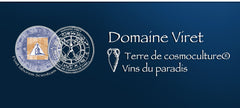
In a magical place steeped in history, Saint-Maurice, in the Rhone Valley. Advocates of the principles of organic and biodynamic agriculture, the Viret family has chosen to employ a particular form of natural viticulture throughout their estate. Known as “cosmoculture®”, this is based on cosmotelluric exchanges. Everything is organised in such a way that both vines and wines are able draw on their own natural defences.
Work in the vineyards focuses on reorganising the magnetic field and on the application of homeopathic and naturals preparations made from rocks and plants that are often found in the vineyards. Alain, Philippe's father, built the winery on an ancient Roman site around an underground spring which they believe energises the vineyards and the winery.
- Red Wine
- Grenache
- Organic, Sustainable
- Dry
- 750ml
- 14.5% alc./vol
About the Winery
Domaine Peter Sichel
Tucked away in a hidden valley in a remote corner of the Languedoc-Roussillon lies a truly special place: the village of Cucugnan. Historically, there was much wine produced here, given its isolated location, but gradually the local people moved away to the towns. There are now just 130 people living in the village. As the vineyards were left mostly abandoned, the local flora and fauna were permitted to thrive. Cucugnan became a unique area, full of biodiversity, which shines through in the rare plants and flowers that grow there today.
Peter Sichel (of the Bordeaux négociant family) first discovered this valley on a road trip with a friend in the 1960s. He was so spellbound by the place that he bought a house there and, in 1988, planted a vineyard. The project grew, albeit slowly, but the arrival of Peter’s thoughtful and environmentally inspired grandson, Alexander Sichel, has turned the Domaine Peter Sichel project completely around.
Since 2019, Alexander has converted the estate to organics and biodynamics, achieving organic certification in 2022. Furthermore, he is committed to supporting polyculture in and around the vineyards, even enlisting the help of a PhD programme from a Dutch university to identify the incredible array of plant life in the vineyard.
Alexander’s grandfather planted the vines between 30-40 years old. Parcels of Grenache, Syrah, Carignan, and Roussanne lie mostly on the best slopes of the valley. Starting from 350-500 metres’ altitude, these slopes have very little topsoil; the roots go almost straight into the bedrock. The viticultural team here has done much work to focus on the unique characteristics of each parcel to express the terroir of this stunning valley in the most authentic way.
- Red Wine
- Carignan, Grenache, Syrah
- Organic, Sustainable
- Dry
- 750ml
- 13.5% alc./vol
About the Winery
Domaine Peter Sichel
Tucked away in a hidden valley in a remote corner of the Languedoc-Roussillon lies a truly special place: the village of Cucugnan. Historically, there was much wine produced here, given its isolated location, but gradually the local people moved away to the towns. There are now just 130 people living in the village. As the vineyards were left mostly abandoned, the local flora and fauna were permitted to thrive. Cucugnan became a unique area, full of biodiversity, which shines through in the rare plants and flowers that grow there today.
Peter Sichel (of the Bordeaux négociant family) first discovered this valley on a road trip with a friend in the 1960s. He was so spellbound by the place that he bought a house there and, in 1988, planted a vineyard. The project grew, albeit slowly, but the arrival of Peter’s thoughtful and environmentally inspired grandson, Alexander Sichel, has turned the Domaine Peter Sichel project completely around.
Since 2019, Alexander has converted the estate to organics and biodynamics, achieving organic certification in 2022. Furthermore, he is committed to supporting polyculture in and around the vineyards, even enlisting the help of a PhD programme from a Dutch university to identify the incredible array of plant life in the vineyard.
Alexander’s grandfather planted the vines between 30-40 years old. Parcels of Grenache, Syrah, Carignan, and Roussanne lie mostly on the best slopes of the valley. Starting from 350-500 metres’ altitude, these slopes have very little topsoil; the roots go almost straight into the bedrock. The viticultural team here has done much work to focus on the unique characteristics of each parcel to express the terroir of this stunning valley in the most authentic way.
- Red Wine
- Grenache
- Organic, Sustainable
- Dry
- 750ml
- 12.5% alc./vol
About the Winery
Domaine Peter Sichel
Tucked away in a hidden valley in a remote corner of the Languedoc-Roussillon lies a truly special place: the village of Cucugnan. Historically, there was much wine produced here, given its isolated location, but gradually the local people moved away to the towns. There are now just 130 people living in the village. As the vineyards were left mostly abandoned, the local flora and fauna were permitted to thrive. Cucugnan became a unique area, full of biodiversity, which shines through in the rare plants and flowers that grow there today.
Peter Sichel (of the Bordeaux négociant family) first discovered this valley on a road trip with a friend in the 1960s. He was so spellbound by the place that he bought a house there and, in 1988, planted a vineyard. The project grew, albeit slowly, but the arrival of Peter’s thoughtful and environmentally inspired grandson, Alexander Sichel, has turned the Domaine Peter Sichel project completely around.
Since 2019, Alexander has converted the estate to organics and biodynamics, achieving organic certification in 2022. Furthermore, he is committed to supporting polyculture in and around the vineyards, even enlisting the help of a PhD programme from a Dutch university to identify the incredible array of plant life in the vineyard.
Alexander’s grandfather planted the vines between 30-40 years old. Parcels of Grenache, Syrah, Carignan, and Roussanne lie mostly on the best slopes of the valley. Starting from 350-500 metres’ altitude, these slopes have very little topsoil; the roots go almost straight into the bedrock. The viticultural team here has done much work to focus on the unique characteristics of each parcel to express the terroir of this stunning valley in the most authentic way.
- Red Wine
- Cinsault, Grenache, Syrah, Tinta Barroca
- Sustainable
- Dry
- Residual Sugar: 4.00 g/l
- Full Bodied
- 750ml
- 14.00% alc./vol
About the Winery
Mullineux & Leeu Family Wines
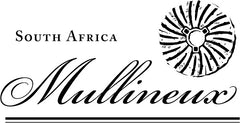
Mullineux Family Wines, established in 2007 in the Swartland region of South Africa, is owned and managed by Chris and Andrea Mullineux. Since its inception the winery has established itself as one of South Africa’s most celebrated wine brands, both locally and internationally. Originally from Northern California, Winemaker Andrea Mullineux studied Viticulture and Oenology at UC-Davis before working in Stellenbosch and meeting Chris at a wine festival in Champagne. Chris is the Viticulturist in charge of the vineyards on their farm on Kasteelberg Mountain as well as fruit sourcing for their value Kloof Street wines.
The vineyards at Roundstone are farmed organically and are in the process of becoming Regenerative Organic certified. This involves practices like crop rotation, no-till farming, and eliminating chemical pesticides and fertilizers. These methods help rehabilitate soil, promote animal welfare, and improve farmers' livelihoods while sequestering carbon and producing healthier yields. In the winery, no additives are used aside from minimal sulfur dioxide, and all operations are IPW certified, following environmental best practices. Waste, including grape skins and lees, is recycled or repurposed, and cellar effluent is processed through an eco-friendly wetland system.
Press Reviews
South Africa Special Report 2024
93 Points- Tim Atkin
'Almost too good,' mused Chris Mullineux when he poured this wine and I know what he means. Combining Syrah, 30% Grenache, 17% Tinta Barocca and 10% Cinsault, it massively over-delivers at its price point, with perfumed 30% whole bunches, bramble, red cherry and white pepper flavours and some granitic grip and freshness. Almost impossible to beat at the price. Drink date: 2024-2029. Best Value Red of the Year.
- Red Wine
- Grenache
- Natural, Sustainable, Vegan-Friendly
- Dry
- Full Bodied
- 750ml
- 13.8% alc./vol
About the Winery
Bodegas Puiggròs
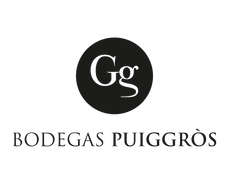
Since 1843, the Puiggros family has been producing wines from their own vines in the Odena region of Catalunya for the family and close friends. Over generations they had come to realize that their vineyards and techniques were something worth sharing with the world. A sincere dedication to the terroir in their zone and the indigenous varieties that grow there, allows them to constantly discover ways to unlock all of the magic that lies within their land.
Starting with conscious and clean farming in the vineyard, they hand-harvest only the best fruit for their production, and ferment each vineyard separately in varying vessels to accentuate what the vines have to show; some in stainless steel, and many in clay amphora of differing sizes. All the while seeing very little sulfur use (if any) until bottling. Puiggros is pushing the quality of northeastern Spain's wines forward, and doing so in a clean and unique way.
Press Reviews
WineAlign
92 points - Michael Godel
A specialist in clay-pot aged garnatxa and this bottling being a red that is only partially aged in amphora. Same limestone and clay soil grown garnatxa at 500m with a view to the mountains of Montserrat, in the outskirts of the village of Odena. As with all these wines there is a clarity and freshness to bely the methodology while here the florally-charged aromas are nothing if not beautiful. Like candied perfume, sweetly scented, inviting and gregarious. Generous too, openly so but also a thing of being so obviously natural. Hard to decide between the full on amphora white or this partially aged red. Both, is the answer. Drink 2023-2027.
Tasted February 2023 - 2020 vintage
90 points - Megha Jandhyala
There is a guileless charm to this fresh and fruity grenache. It was made with fruit sourced from vines planted at 500 meters above sea level in the outskirts of Odena in Catalunya and fermented in either clay amphorae or large concrete tanks. I like the cheerful flavours of juicy red fruit, accompanied by subtle notes of earth and resinous herbs, and pretty aromas of violets. The palate is medium-bodied, warm, and comforting, with fine tannins and juicy, fresh acids. The finish is long and fruity.
Tasted February 2023 - 2020 vintage
90 points - John Szabo, MS
A clay amphora-aged garnacha from Catalunya, high ripeness is evidenced by the sweet, red currant and cherry jam flavours alongside 14.5% alcohol declared. Yet the palate remains firm and fresh, juicy even, thanks to the zesty acids. Tannins are light and fine, and length and depth are good. I'd let this settle for another year or two to further the quest for complexity.
Tasted January 2024 - 2021 vintage
- Red Wine, Rosé Wine
- Grenache, Malbec, Sauvignon Blanc, Syrah, Sémillon
- Sustainable
- Dry
- 750ml
About the Winery
Château Barouillet

Chateau Barouillet has been a family business going back at least 8 generations. Vincent Alexis works alongside his father and grandfather to cultivate the land and has moved the winery into organic viticulture, starting to convert the soil in 2010 and fully converting all the vineyards by 2014. In 2020, the obtained their biodynamic certification.
The domaine controls 45 hectares of vines throughout Monbazzillac, Bergerac Pécharmant, and Cotes de Bergerac. Vincent continues to push the biological approach further by working according to the lunar calendar in the vineyards and in the cellar.
Château Lamartine
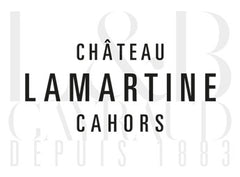 The Château Lamartine stands at the extremely west side of the Cahors Appellation, on the oldest of Lot Valley’s terraces. The terroir of the 37 hectares faces South on clay and limestone soils which guarantees a perfect maturity to the Malbec.
The Château Lamartine stands at the extremely west side of the Cahors Appellation, on the oldest of Lot Valley’s terraces. The terroir of the 37 hectares faces South on clay and limestone soils which guarantees a perfect maturity to the Malbec.For four generations, the Gayraud family has given the greatest care to the vines as well as the wine-making. This is the key to get the purest expression from the terroirs.
Domaine de Mauperthuis

A family estate created by Marie-Noëlle & Laurent Ternynck, Domaine de Mauperthuis is located in Prehy, near the town of Chablis. Their wines express the terroir of this amazing region and the vineyards are currently undergoing the transition to organic. Domaine de Mauperthuis covers around twenty hectares of vineyards around Chablis. The estate, in the Burgundy appellation, is planted in Chardonnay, Pinot Noir, Sauvignon and César, on land facing south, benefiting from exceptional sunshine.
Mas Carlot

Mas Carlot is situated in the south of the Rhône Valley, extending across 76 hectares of pebbly land southeast of Nîmes. Originally a 17th century farm, this beautiful estate was resurrected in the 1960's by the Blanc family—it is currently run Cyril Mares of the neighbouring and equally reputable property, Mas Bressades.
The appellation of Costières de Nîmes used to be considered part of eastern Languedoc but the climate, soil, topography and wine are far closer to those just over the river in the Southern Côtes du Rhône. It is now a region very much on the up and is widely recognized as a great source of excellent value wine.













